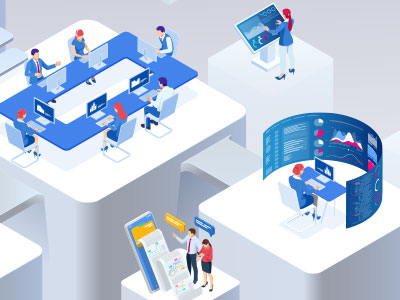Mobile messaging was once a casual method for sharing quick updates, but it has now become a prominent communication channel for professional purposes. When it is used properly, mobile messaging can support real-time learning, improve internal communication and strengthen workplace engagement.
Let’s understand how mobile messaging is shaping the way legal teams prepare future leaders.
The Communication Gap in Legal Training
In the legal sector, training has traditionally relied on formal methods such as offline seminars, long documents and one-on-one mentorship. Of course, this still plays a role, but often it comes with challenges.
Legal professionals are busy, so scheduling long training sessions is not always practical. Often, junior associates must wait days for feedback on their work, missing the opportunity to learn in the moment. New employees are often given a large volume of information at once, which can lead to confusion and burnout.
Mobile messaging helps fill these gaps. It offers a way to share knowledge quickly, provide immediate guidance and build daily habits of learning.
Microlearning via Messaging
The major benefit of mobile messaging is that it supports microlearning. It is the training method in which small and focused bursts of information are provided. This training approach is quite effective for legal environments where learning is ongoing and generally situation-specific.
For example, if a new associate has to read a 20-page memo, it can be overwhelming. Instead, if they receive a short message each morning with the key principals to look for or a reminder to focus on certain parts of the memo, the mobile messaging can make the review more effective. These small lessons, which are spread over time, can help reinforce knowledge without disrupting daily tasks.
Microlearning through mobile messaging includes:
- Definitions of legal terms
- Update on changes in laws or rules
- Short procedural reminders
- Practical tips for client interaction and courtroom behavior
When young professionals receive a steady stream of knowledge, it helps them build confidence while staying engaged.
Encouraging Real-Time Feedback and Support
Legal training does not end after the ongoing process, but it continues through every case, contact or client interaction. On-time feedback is crucial for growth, and mobile messaging provides a simple channel to make it happen.
A quick message that offers clarification, encouragement and constructive feedback can make a significant difference in how someone learns. It keeps communication flowing without needing any formal meetings.
Mobile messaging allows trainers and senior staff to share valuable resources, internal guides and regulatory updates. It reinforces policies or workplace norms in a low-pressure way. Text messaging provides instant correction when necessary, and it prompts junior members with questions that encourage critical thinking.





